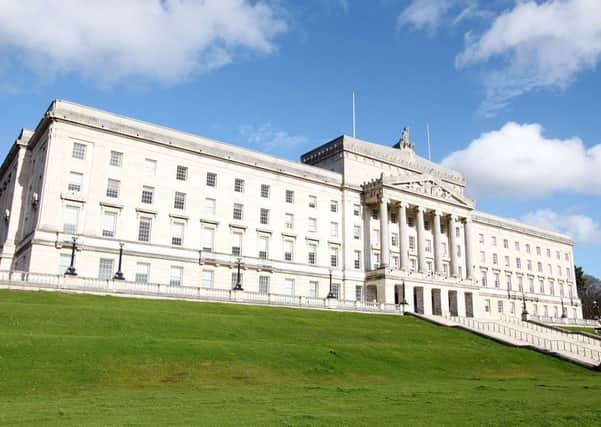Unionists have good reason to be furious but must try to be positive


The party has to take responsibility for communicating its position clumsily, but the balance of criticism has been grossly unfair.
After all, what exactly was the DUP supposed to do in the circumstances?
The latest impasse cannot be viewed in isolation.
Advertisement
Hide AdAdvertisement
Hide AdThough to listen to Northern Ireland’s increasingly vocal and partisan cohort of nationalist commentators, you’d think that every new political stand-off at Stormont was a unique and novel affront by unionists.
The truth is that Sinn Fein has used the same tactics many times before.
Republicans habitually collapse power-sharing, create a crisis and then allow demands to build that unionists should accommodate them by agreeing some sort of compromise.
If Arlene Foster pushed through an Irish language act, against the wishes of most pro-Union voters, why on earth wouldn’t Sinn Fein be back with a fresh shopping-list, six months, a year or two years later?
Advertisement
Hide AdAdvertisement
Hide AdWe’ve not seen the text of the agreement that the two parties supposedly came so close to signing, but none of the rumoured contents would have made Stormont any more stable or less prone to collapse. Nor was the Irish language act that Sinn Fein says was agreed moderate or reasonable.
It would have changed Northern Ireland profoundly and for the worse.
If Gaelic were permitted in courts, it could only ever be used for scurrilous or political reasons. No-one who speaks Irish is remotely disadvantaged by proceedings taking place in English and a court of law is a place of business, where utility is paramount, not an arena to promote cultural aspirations.
Likewise, Northern Ireland’s political system is already stuffed with expensive commissioners, all of whom need offices and staff. The ‘advocacy’ function of these posts means that they’re always trying to expand their remits, in order to justify their existence.
Advertisement
Hide AdAdvertisement
Hide AdEstablishing an Irish language commission would ensure that the demands of the language lobby would never be satisfied. If our society is ever to function properly, we need to get rid of ombudsmen and commissioners, not add more.
You can rhyme off the various talks and agreements, Stormont House, Fresh Start, the reboot of Fresh Start, Hillsborough, all the way back to St Andrews, which took the Belfast Agreement and made it incomparably worse.
Whatever the apparent cause, they’ve all followed a similar pattern, once negotiations got started. Even when it was the DUP that withdrew from the executive, because the police accused Sinn Fein’s paramilitary wing of murder back in 2015, we ended up with weeks of republican demands over welfare and legacy, which culminated in the Fresh Start Agreement.
Throughout all these crises, unionists have struggled to articulate their case and have been prone to taking the blame, but the current log-jam is the most dangerous yet for unionism. There is a swelling contingent of liberal remainers across the UK who are so steaming mad that they’re quite prepared to make common cause with nationalists and the Irish government to try to stop or dilute Brexit.
Advertisement
Hide AdAdvertisement
Hide AdThey hate the DUP, its staunchly pro-leave views and its alliance with the Conservative government, with an ardour that even unionists who voted ‘remain’ struggle to accept or understand.
It’s hard to sympathise with that party entirely, because it created many of the problems unionism now faces. When it negotiated the St Andrews Agreement in 2007, it turned a blind eye to government commitments on the Irish language and diluted the competitive element of Northern Irish politics, probably deliberately, by changing the mechanism for nominating the first minister.
It’s impossible to undo recent history or ignore electoral arithmetic, so unionists are left to navigate the situation as it confronts them.
One quite understandable response is fury, because unionism continues to be demonised, even though nationalism has allowed itself to be dominated by leaders who take their direction straight from the Felons’ Club of former IRA prisoners.
Yet anger won’t solve anything by itself.
Advertisement
Hide AdAdvertisement
Hide AdUnionism is in real trouble if it can’t find a positive, upbeat way to promote its values and challenge the sense that Northern Ireland is in perpetual crisis. And if Stormont is eventually restored, it will certainly crash again unless unionists broker a deal that reforms the institutions, so that they cannot be continually collapsed and politics here become competitive again.